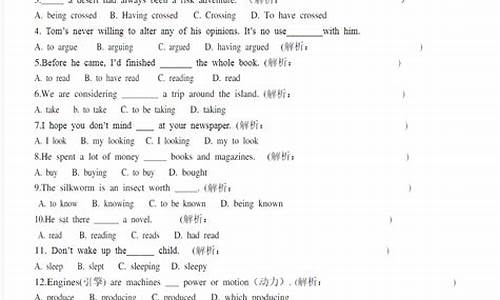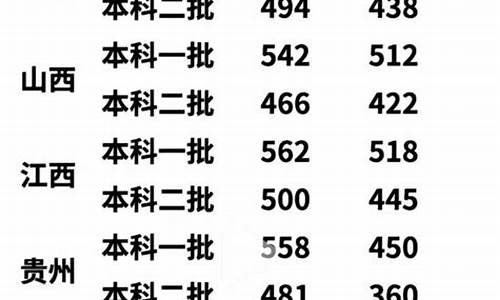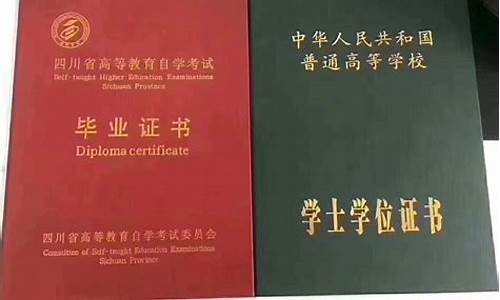您现在的位置是: 首页 > 教育资讯 教育资讯
高考英语现在分词表,高考英语现在分词
tamoadmin 2024-05-22 人已围观
简介1.高考英语常考固定搭配总结(一) 英语的重点主要在词汇,语法、阅读理解、 作文 ……等等,其中语法是让大家一直比较头疼的知识点,下面给大家带来一些关于英语语法 知识大全 汇总,希望对大家有所帮助。 1.英语语法指的是什么 英语语法是针对英语语言进行研究后,系统地 总结 归纳出来的一系列语言规则。英语语法的精髓在于掌握语言的使用。英语语法包括词语、时态、语态、语气、
1.高考英语常考固定搭配总结(一)

英语的重点主要在词汇,语法、阅读理解、 作文 ……等等,其中语法是让大家一直比较头疼的知识点,下面给大家带来一些关于英语语法 知识大全 汇总,希望对大家有所帮助。
1.英语语法指的是什么
英语语法是针对英语语言进行研究后,系统地 总结 归纳出来的一系列语言规则。英语语法的精髓在于掌握语言的使用。英语语法包括词语、时态、语态、语气、 句子 成分、句型结构等。
1.一般现在时:表示现在的状态、经常的或习惯性的动作、主语具备的性格和能力等。基本结构:主语+be/do+其他。
2.一般过去时:表示过去某个时间内(或某一段时间内)发生的动作或存在的状态,过去经常或反复发生的动作。基本结构:主语+动词的过去式或be的过去式+名词。
3.一般将来时:表示将要发生的动作、打算、计划或准备做某事。基本结构:主语+am/is/are+going to + do sth;主语+will/shall+do sth
4.一般过去将来时:立足于过去某一时刻,从过去看将来,常用于宾语从句中。基本结构:主语+was/were+going to+do+ 其它 ;主语+would/should+do+其它。
5.现在进行时:表示现在(说话时)或当前阶段正在进行或发生的动作。基本结构:主语+be+doing+其它。
6.过去进行时:表示过去某段时间或某一时刻正在发生或进行的行为或动作。基本结构:主语+was/were+doing+其它。
7.将来进行时:表示将来某一时间正在进行的动作,或表示要在将来某一时间开始,并继续下去的动作。常用来表示询问、请求等。基本结构:主语+shall/will+be+现在分词+其它。
8.过去将来进行时:表示就过去某一时间而言,将来某一时刻或某一段时间正在进行的动作,主要用于宾语从句中,尤其多用于间接引语中。基本结构:should/would+be+现在分词。
9.现在完成时:过去发生或已经完成的动作对现在造成的影响或结果,或从过去已经开始,持续到现在的动作或状态。基本结构:主语+have/has+p.p(过去分词)+其它。
10.过去完成时:以过去某个时间为标准,在此以前发生的动作或行为,或在过去某动作之前完成的行为,即“过去的过去”。基本结构:主语+had+p.p(过去分词)+其它。
2.英语语法基础知识汇总
1.as...as...引导的比较级:
(1)“as +形容词或副词原级+as+被比较对象”结构。例句:He studies as hard as you. 他像你一样学习努力。
(2)在否定句或疑问句中可用not so…as…. 例句:He can notrun so/as fast as you. 他没你跑得快。
2.only引导的倒装句型:only +状语(或状语从句)位于句首时,句子部分倒装。
例句: Only by diligence and honesty can one succeed inlife. 只有勤奋、正直,一个人在生活中才能成功。
注意:但 only修饰主语时,不倒装。例句:Onlythat girl knew how to work out the problem. 只有那位女生知道怎样解那道题。
3.wish引导的虚拟语气:wish 后面的从句,当表示与事实相反的情况,或表示将来不太可能实现的愿望时,其宾语从句的动词形式为:
(1)表示对现在情况的虚拟:从句动词用过去式或过去进行式表示,be 的过去式用were.
I wish I knew the answer to the question. 我希望知道这个问题的答案。(可惜不知道。)
(2)表示对过去情况的虚拟:从句动词用had +过去分词。
I wish (that) I hadn’t wastedso much time. 我后悔不该浪费这么多时间。( 实际上已经浪费掉了。)
(3)表示对将来的主观愿望:谓语动词形式为“would/ should/ could/ might +动词原形”。在这种情况下,主句的主语与从句的主语不能相同,因为主句的主语所期望的从句动作能否实现,取决于从句主语的态度或意愿(非动作名词除外) 。
I wish it would stop raining. 但愿雨能停止。
注意:若wish 后的宾语从句中用would,可以表示请求,通常意味着说话人的不快或不满。
例句:I wish you would be quiet. 我希望你安静一些。
4.it形式宾语:和it 作形式主语一样, 我们常用it 来作形式宾语, 把真正的宾语从句放在句末, 这种情况尤其出现在带复合宾语的句子中。
例句:He has made it clear that he will not give in. 他表明他不会屈服。
5.The+比较级,the+比较级表示“越......越......”。
例句:The more scared we are, the stronger the difficultywill become.我们越害怕困难,困难就会变得越强大。
6.宾语从句:一般疑问句做宾语,引入if或whether
例句: I want to know if he will join us in thediscussion?
7. 原因状语从句:since引导的
例句: Don’t eat too much sugarsince it is bad for your health.
8. 否定词前置倒装:scarcely...when...
例句: Scarcely had he arrived at home when it began torain.
9.If虚拟条件句
3.英语语法解析
1.连词that, if, whether,连接代词what, which, who, whom, whose以及连接副词how, when, why, where可用来引导名词从句,充当主语、表语、宾语等。非正式文体中的宾语从句常省略that:
I think (that) he’ll be back in an hour. 我认为他一小时后就会回来。
Who they are doesn’t matter much. 他们是谁没什么大关系。
Can you tell me where he is? 你能告诉我他在哪儿吗?
He asked me if/whether I knew John. 他问我是否认识约翰。
此外,that, which, who, whom, whose, when, why, where等还可以引导定语从句。
2.连词when, while, before, after, till/until, since, as soon as等引导时间状语从句:
She said hello to me when she saw me. 她看到我的时候,和我打了招呼。
I’ll wait here until you come back. 我将在这里等你回来。
3.连词if, unless引导条件状语从句;because, as, since引导原因状语从句:
I’ll help her if she asks me to. 如果她要求我,我就帮助她。
I won’t help her unless she asks me to. 除非她要求我,否则我不会帮她。
He didn’t come because he was ill. 因为他病了,所以没来。
As he hasn’t appeared yet, we shall start without him. 既然他还没有出现,我们就先开始吧。
Since everybody is here, let’s begin. 既然大家都到了,咱们就开始吧。
4.连词in order than, so that引导目的状语从句;so … that …引导结果状语从句:
I locked the door in order that we might continue our discussions undisturbed. (=I locked the door in order to continue our discussions undisturbed.) 我把门锁上了,以便我们可以继续讨论而不受打扰。
The car ran so fast that I couldn’t see who was in it. 汽车跑得那么快,我没看清谁坐在里面。
5.连词than, as…as…, not as/so…as…用来引导比较状语从句:
He is better educated than his brother. 他比他兄弟受的 教育 好。
He is as well educated as his brother. 他和他兄弟受的教育一样好。
He is not as/so well educated as his brother. 他没有他兄弟受的教育好。
6.连词although, though 引导让步状语从句;where, wherever 引导地点状语从句:
I’ll go wherever you go. 不管你去哪儿,我就去那儿。
Stay where you are! 原地别动!
Though/Although she is rich, she’s not happy. 尽管她富有,但她并不幸福。
一般来说,连词性质的连接词连接两个分句或引导一个从句,两个分句或主从复合句之间用逗号连接。
二、副词性连接词
副词性质的连接词不能象连词一样分句或主从复合句之间用逗号连接。也就是说它们不能连接两个分句或引导从句。它们引导的句子与前面的句子之间要用分号或句号,而它们与引导的句子之间往往用逗号。副词性质的连接词在写作中常常使用,主要分为以下几类:
1.表示顺序的,如first, in the first place, then, finally, in the end等等。尤其要注意then. 如:
误:He graduated from college in 2003, then he found a job.
正:He graduated from college in 2003, and then he found a job.
He graduated from college in 2003. Then he found a job.
2.表示递进关系的,如in addition, what is more, furthermore, moreover等。注意in addition 与in addition to 的区别:in addition 是副词性质;而in addition to 是介词性质,后面必须接宾语。
3.表示转折关系的,如however, nevertheless, nonetheless, on the contrary, in contrast, 等等。要注意不要把however 当成连词。
英语语法知识大全汇总相关 文章 :
★ 英语语法大全总结
★ 英语语法总结大全
★ 最全七年级英语语法知识点汇总
★ 初中常考的英语语法知识点汇总
★ 初一英语全册语法知识点汇总
★ 高考英语语法知识大全
★ 小学英语语法知识点汇总
★ 初一英语语法知识点总结归纳
★ 六年级英语语法知识点汇总
★ 高考英语必考语法知识点汇总
高考英语常考固定搭配总结(一)
考生选择的复习资料不宜过多、要精当、系统性好一些,有针对性地适当补充较弱方面的专项练习材料,可以向老师咨询,从而更好的使自己提升,下面是我给大家带来的 高三英语 基本基础知识点概括,希望大家能够喜欢!
高三英语基本基础知识点概括1
1、 at
如: 常用词组有: at noon, at night
表示时间的 at, in, on:表示片刻的时间,at 8 o’clock,at midnight, at the end of, at that time, at the beginning of, at the age of, at Christmas, at New Year 等。
in 表示一段的时间
如:in the morning, in the afternoon, in the evening, in October, in 1998, in summer, in the past, in the future 等。
on 总是跟日子有关,on Monday, on Christmas morning, on the following, on May Day, on a warm morning 等。
2、表示时间的 since 和 from:since 表示从过去到现在的一段时间的过程,常与现在完成时连用:from 表示从时间的某一点开始,不涉及与现在的关系。一般多与现在时、过去时、将来时连用。
如:I hope to do morning exercises from today./ We have not seen each other since 1995.
3、表示时间的 in 和 after:两者都表示“在(某个时间)之后,区别在于in表示“在(一段时间)之后” ,而 after 则表示“在(某一具体时间点之后),in 短语 和将来时态连用,after 短语和过去时态或将来时态连用。
如:We’ll be back in three days.
After seven the rain began to fall.
What shall we do after graduation?
After two months he returned. 注意:after 有时也可以表示在一段时间之后(常用在过去时里)
4、表示地理位置的 in, on, to:in 表示在某范围内,on 指与什么毗邻,to 指在某环境范围之外
如:Changchun is in the northeast of China./ Mongolia is on the north of China./ Japan is tothe east of China.
5、表示“在……上”的 on 和 in:on 只表示在某物的表面上,而用 in 表示占去某物一部分,表示……上
如:There is a book on the piece of paper./ There is an interesting article in the newspaper./ He dug a hole in the wall.
6、表示“穿过……”的 through 和 across:through 表示从内部通过,与 in 有关;across 表示“穿过……”,表示从一端至另一端在表面上的通过,与 on 有关。
如:Water flows through the pipe./ The old man walked across the street.
7、in the corner, on the corner, at the corner:in the corn 表示在落,in 指角的内面;on the corner 表示“在角上” ,on 指的不是内面,也不是外面,而含内外兼有之意;at the corner指“在拐角处” 指的是拐角外附近的外面。
如:The lamp stands in the corner of the room./ I met at with him at the street corner./ He sat on the corner of the table.
8、in the end, at the end of, by the end of:in the end 作“最后”“终于”解,可单独使用,后不接介词 of;at the end of 表示“在……末梢”“到……尽头” ,既可指时间,也可以指地上或物体。不可单独使用;by the end of 作“在……结束时”“到……末为止”解,只能指时间,不可单独使用。
如:In the end they reached a place of safety./ At the end of the road stands a beautiful garden./ They decided to have an English evening at the end of this week./ by the
end of last month he had finished the novel
9、表示“关于”的 about 和 on:两者都有“关于”的意思,不过前者为一般用词,而后者表示“关于” ,为较正式的 “论述”
如:He came to tell me about something important./ He wrote a book on science
10、between, among:一般说来,between 表示两者之间,among用于三者或三者以上的中间。
如:You are to sit between your father and me./ He is always happy among his classmates.
注意:但有时说的虽然是三个以上的人或东西,如果强调的是两两相互间接关系,适用于between。
如:Agreements were made between the different countries. 在谈到一些事物或一组事物,
而把它们视为分居两边时用 between。
如:The little valley lies between high mountains.
在谈事物 间的差别时,总是用 between。
如:They don’t know the difference between wheat, coats and barley.
11、besides, except, but, except for:
besides 指除了……还有
如:All went out besides me
except 指“除了,减去什么” ,不能放在句首。
如:All went out except me.
but 与 except 意思近似,表示“除了……外”经常用在 no, all, nobody, anywhere, everything 等和其他疑 问词后面。
如:I never saw him reading anything but the newspaper.;
except for 表示“如无……就, 只是”表明理由细节。
如:His diary is good except for a few spelling mistakes.
12、表示“用”的 in 和 with:表示工具的“用” 、表示“ ,用 with,而表示材料、方式、 方法 、度量、单位、语言、声音等的 “用” 用 in。
如:He is writing a letter with a pen./ He wrote the letter in pencil
We measured it in pounds./ Read the text in a loud voice./ Tell me the story in English.
13、charge of 和 in the charge of:in 两者都表示 “由谁负责、照顾、管理” 区别在于: charge of 后接被照管的人或物, in the charge of 后面则跟照管的人。
如:Who is in charge of the project
The project is in the charge of an engineer
14、as, like:as 作“作为”“以……地位或身份”解。
如:Let me speak to you as a father.(事实是父亲)
like 作“象……一样”解
如:Let me speak to you like a father.(事实上不是父亲)
15、in front of 和 in the front of:in front of = before,是“在……前面”的意思(不在某物内)
in the front of 则是“在……前部”的意思(在某物内)
如:There is a desk in front of the blackboard./ The boy sat in the front of the car.
16、in, into:into 表示动向,不表示目的地或位置。
如:We walked into the park.;in 通常表示位置。
We walked in the park;
in 和 drop, fall, put, throw, break 等终止性动词连用时,也可以表示动向。
如:I have put the coin in (into) my pocket.我把硬币放进衣袋。
高三英语基本基础知识点概括2
一、就近一致原则
1.由or,not only...but also...,neither...nor...,either...or...,whether...or...,not...but...等连接两个或两个以上的并列主语时,通常根据就近一致原则,谓语动词要与离它最近的主语在数上保持一致。
Neither his parents nor I am able to persuade him to change his mind.
2.here/there引导一个 句子 而主语又不止一个时,通常根据就近原则,谓语动词要与离它最近的主语在数上保持一致。
Here is a ruler,a few pencils and two copybooks.
二、意义一致原则
1.谓语动词必须用单数的情况
(1)表示学科的名词以及works(工厂),news(消息)等作主语时,虽然本身为复数形式,但表示单数意义时,谓语动词仍用单数。
Politics is his favorite subject.
(2)表示某些组织机构的名词、书/报名、国名、地名等作主语时,虽然形式上是复数,但所表示的意义是单数,所以谓语动词用单数。
Do you know when the United Nations was set up?
2.谓语动词必须用复数的情况
表示总称意义的名词,如people,police,public,cattle等作主语时,谓语动词用复数。
The police are searching for the murderer.
3.谓语动词的形式依据主语表示的意义而定
(1)集体名词,如family,class,group,team,club,company,government,population等作主语时,谓语动词的形式根据其在语境中表示的意义而定。当其表示集体意义,强调整体概念时,谓语动词用单数;当其表示集体中各个组成部分,强调个体概念时,谓语动词用复数。
As far as I know,his family is not very large but the family are all music lovers.
(2)“the+形容词/分词”表示“一类人”时,谓语动词用复数。
The poor were looked down upon in the old days.
三、语法一致原则
1.由and连接的两个名词作主语
(1)“a/the+名词单数+and+名词单数”表示一个人(双重身份),谓语动词用单数。
The teacher and poet often gives lectures around the city.
(2)“a/the+名词单数+and+a/the+名词单数”表示两个人,谓语动词用复数。
The teacher and the poet have just arrived.
(3)“every+名词单数+and+every+名词单数”表示每一个人,谓语动词用单数。
Every boy and every girl has the right to receive education in our country.
(4)通常由两个部件组成的物品如:a knife and fork (一副刀叉)等作主语,谓语动词用单数。
Bread and butter is not to his taste.
2.表示时间、数量、长度及价格的名词,尽管有时是复数形式但常被看作是一个整体,谓语动词用单数形式。
Is fifty pounds enough?
3.“分数/百分数+of+名词”作主语时,谓语动词的形式根据of后的名词的形式来定,如果名词是可数名词复数,谓语动词用复数形式;如果名词是单数可数名词或不可数名词,谓语动词用单数形式。
Two-thirds of the books are about science.
Only 30% of the work was done yesterday.
高三英语基本基础知识点概括3
分词的概念
分词是动词的一种非谓语形式,主要起形容词和副词的作用,可以作定语、表语或是状语等。分词有两种,一种是现在分词,一种是过去分词。这两种分词在句子中能担任的成分大体相同,主要是在“意思”上有主动和被动之分。过去分词一般有被动和完成两大特征。
过去分词的定语和表语功能定语表“完成”或“被动”
boiled water开水 fallen leaves落叶
the risen sun升起的太阳 selected apples 精选苹果
spoken English 英语口语 iced beer冰镇啤酒
cooked food熟食 fried chips炸土豆条
单个的过去分词作定语时,一般放在被修饰词语之前(如上例),也可以放在所修饰词语的后面。 Hurry up,there is only a little time left.快点,时间不多了。
If you wish everything changed,please say so.
你如果希望改变一切,请说明。
过去分词短语作定语时,须将分词放在被修饰的词语之后,功能相当于一个定语从句。 Near the window,there is a bookshelf filled
with many books(=which is filled with many books).
靠近窗户,有一个装满书的书架。
Her daughter,brought up by me(=who was brought
up by me)has begun to work now.
由我带大的她的女儿现在已经参加工作了。 当“人”作主语时用过去分词作表语,表示主语的状态或思想感情等。 When we heard of it,we were deeply moved.
当我们听到这件事时,被深深地感动了。 He seemed quite delighted at the idea.
听到这个想法,他似乎很高兴。
过去分词作表语不要与被动语态混为一体。分词作表语表示主语的状态,而被动语态则表示被动的动作。 My glasses are broken.我的眼镜碎了。(状态)
My glasses were broken by my son.
我的眼镜被我儿子摔碎了。(动作)
On the earth,70% of the surface is covered with water.地球表面70%是被水覆盖的。(状态)
I was greatly surprised by a knock at the door.
敲门声使我大为吃惊。(动作)
高三英语基本基础知识点概括相关 文章 :
★ 高三英语知识考点整理概括
★ 高中英语学习基础知识总结归纳
★ 高中英语基础知识点总结
★ 高中英语学习基础知识总结归纳
★ 高考英语基础知识学习攻略
★ 高三英语语法知识点总结
★ 高中英语学习基础知识总结归纳(2)
★ 高考英语重点知识点
★ 高中英语基础知识点
★ 高考英语知识点归纳最新
一、接不定式(而不接动名词)作宾语的24个常用动词
afford to do sth. 负担得起做某事
agree to do sth. 同意做某事
arrange to do sth.安排做某事
ask to do sth. 要求做某事
beg to do sth. 请求做某事
care to do sth. 想要做某事
choose to do sth. 决定做某事
decide to do sth. 决定做某事
demand to do sth. 要求做某事
determine to do sth. 决心做某事
expect to do sth. 期待做某事
fear to do sth. 害怕做某事
help to do sth. 帮助做某事
hope to do sth. 希望做某事
learn to do sth. 学习做某事
manage to do sth. 设法做某事
offer to do sth. 主动提出做某事
plan to do sth. 计划做某事
prepare to do sth. 准备做某事
pretend to do sth. 假装做某事
promise to do sth. 答应做某事
refuse to do sth. 拒绝做某事
want to do sth. 想要做某事
wish to do sth. 希望做某事
注:有些不及物动词后习惯上也接不定式,不接动名词:
aim to do sth. 打算做某事
fail to do sth. 未能做某事
long to do sth. 渴望做某事
happen to do sth. 碰巧做某事
hesitate to do sth. 犹豫做某事
struggle to do sth. 努力做某事
二、接不定式作宾补的36个常用动词
advise sb. to do sth. 建议某人做某事
allow sb. to do sth. 允许某人做某事
ask sb. to do sth.请(叫)某人做某事
bear sb. to do sth.忍受某人做某事
beg sb. to do sth. 请求某人做某事
cause sb. to do sth. 导致某人做某事
command sb. to do sth. 命令某人做某事
drive sb. to do sth .驱使某人做某事
elect sb. to do sth. 选举某人做某事
encourage sb. to do sth. 鼓励某人做某事
expect sb. to do sth. 期望某人做某事
forbid sb. to do sth. 禁止某人做某事
force sb. to do sth. 强迫某人做某事
get sb. to do sth. 使(要)某人做某事
hate sb. to do sth. 讨厌某人做某事
help sb. to do sth. 帮助某人做某事
intend sb. to do sth. 打算要某人做某事
invite sb. to do sth. 邀请某人做某事
leave sb. to do sth. 留下某人做某事
like sb. to do sth. 喜欢某人做某事
mean sb. to do sth. 打算要某人做某事
need sb. to do sth. 需要某人做某事
oblige sb. to do sth. 迫使某人做某事
order sb. to do sth. 命令某人做某事
permit sb. to do sth. 允许某人做某事
persuade sb. to do sth. 说服某人做某事
prefer sb. to do sth. 宁愿某人做某事
request sb. to do sth. 要求某人做某事
remind sb. to do sth. 提醒某人做某事
teach sb. to do sth .教某人做某事
tell sb. to do sth. 告诉某人做某事
train sb. to do sth. 训练某人做某事
trouble sb. to do sth. 麻烦某人做某事
want sb. to do sth. 想要某人做某事
warn sb. to do sth. 警告某人做某事
wish sb. to do sth. 希望某人做某事
三、接动名词(不接不定式)作宾语的34个常用动词
admit doing sth. 承认做某事 advise doing sth. 建议做某事
allow doing sth. 允许做某事 appreciate doing sth. 感激做某事
avoid doing sth. 避免做某事 consider doing sth. 考虑做某事
delay doing sth. 推迟做某事 deny doing sth. 否认做某事
discuss doing sth. 讨论做某事 dislike doing sth. 不喜欢做某事
enjoy doing sth. 喜爱做某事 escape doing sth. 逃脱做某事
excuse doing sth. 原谅做某事 fancy doing sth. 设想做某事
finish doing sth. 完成做某事 forbid doing sth. 禁止做某事
forgive doing sth. 原谅做某事 give up doing sth. 放弃做某事
imagine doing sth. 想象做某事 keep doing sth. 保持做某事
mention doing sth. 提及做某事 mind doing sth. 介意做某事
miss doing sth. 错过做某事 pardon doing sth. 原谅做某事
permit doing sth. 允许做某事 practice doing sth. 练习做某事
prevent doing sth. 阻止做某事 prohibit doing sth. 禁止做某事
put off doing sth. 推迟做某事 report doing sth. 报告做某事
risk doing sth. 冒险做某事 stop doing sth. 停止做某事
suggest doing sth. 建议做某事 understand doing sth. 理解做某事
四、接现在分词作宾补的20个常用动词
bring sb. doing sth.引起某人做某事 catch sb. doing sth. 碰上(撞上)某人做某事
discover sb. doing sth. 发现某人做某事 feel sb. doing sth. 感觉某人做某事
find sb. doing sth. 碰上(撞上)某人做某事 get sb. doing sth. 使某人做某事
have sb. doing sth. 使某人做某事 hear sb. doing sth. 听见某人做某事
keep sb. doing sth. 使某人不停地做某事 listen to sb. doing sth. 听某人做某事
look at sb. doing sth. 看着某人做某事 notice sb. doing sth. 注意到某人做某事
observe sb. doing sth. 观察某人做某事 prevent sb. doing sth. 阻止某人做某事
see sb. doing sth. 看见某人做某事 send sb. doing sth.使某人(突然)做某事
set sb. doing sth. 使(引起)某人做某事 start sb. doing sth. 使某人开始做某事
stop sb. doing sth. 阻止某人做某事 watch sb. doing sth. 观五、接动词原形作宾补的11个常用动词
feel sb. do sth. 感觉某人做某事 have sb. do sth. 使某人做某事
hear sb. do sth. 听见某人做某事 let sb. do sth.让某人做某事
listen to sb. do sth. 听着某人做某事 look at sb. do sth. 看着某人做某事
make sb. do sth. 使某人做某事 notice sb. do sth. 注意某人做某事
observe sb. do sth. 观察某人做某事 see sb. do sth. 看见某人做某事
watch sb. do sth. 观察某人做某事
六、接不定式或动名词作宾语意思相同的12个动词
like to do sth / like doing sth. 喜欢做某事
love to do sth / love doing sth. 喜欢做某事
hate to do sth / hate doing sth. 憎恨做某事
prefer to do sth / prefer doing sth. 宁可做某事
begin to do sth / begin doing sth. 开始做某事
start to do sth / start doing sth. 开始做某事
continue to do sth / continue doing sth. 继续做某事
can?t bear to do sth / can?t bear doing sth. 不能忍受做某事
bother to do sth / bother doing sth. 麻烦做某事
intend to do sth / intend doing sth.想要做某事
attempt to do sth / attempt doing sth. 试图做某事
cease to do sth / cease doing sth. 停止做某事
七、接不定式或动名词作宾语意思不同的7个动词
(1) remember to do sth. 记住要做某事 remember doing sth. 记住曾做过某事
(2) forget to do sth. 忘记要做某事
(3) regret to do sth. 后悔(遗憾)要做某事 regret doing sth. 后悔(遗憾)曾做过某事
(4) try to do sth. 设法要做某事 try doing sth. 做某事试试看有何效果
(5) mean to do sth. 打算做某事 mean doing sth. 意味着做某事
(6) can?t help to do sth. 不能帮助做某事 can?t help doing sth. 禁不住做某事
(7) go on to do sth. 做完某事后接着做另一事 go on doing sth. 继续做一直在做的事
注:stop to do sth. 与stop doing sth.也不同,前者指停下来去做某事,后者指停止正在做的事,但stop to do sth. 中的不定式不是宾语,是目的状语。
八、可接双宾语的38个常用动词
(1) 双宾语易位时需借助介词to的常用动词
award sb. sth. = award sth. to sb. 颁奖给某人
bring sb. sth. = bring sth. to sb. 把某物带给某人
hand sb. sth. =hand sth. to sb. 把某物递给某人
lend sb. sth. = lend sth. to sb. 把某物借给某人
mail sb. sth. = mail sth. to sb. 把某物寄给某人
offer sb. sth. = offer sth. to sb. 将某物给某人
owe sb. sth. = owe sth. to sb. 欠某人某物
pass sb. sth. = pass sth. to sb. 把某物递给某人
pay sb. sth. = pay sth. to sb. 付给某人某物(钱)
post sb. sth. = post sth. to sb. 把某物寄给某人
read sb. sth. = read sth. to sb. 把某物读给某人听
return sb. sth. = return sth. to sb. 把某物还给某人
send sb. sth. = send sth. to sb. 把某物送给某人
sell sb. sth. = sell sth. to sb. 把某物卖给某人
serve sb. sth. = serve sth. to sb. 拿某物招待某人
show sb. sth. = show sth. to sb. 拿某物给某人看
take sb. sth. = take sth. to sb. 把某物拿给某人
teach sb. sth. = teach sth. to sb. 教某人某物
tell sb. sth. = tell sth. to sb. 告诉某人某情况
throw sb. sth. = throw sth. to sb. 把某物扔给某人
write sb. sth. = write sth. to sb. 给某人写信
(2) 双宾语易位时需借助介词for的常用动词
book sb. sth. = book sth. for sb. 为某人预定某物
buy sb. sth. = buy sth. for sb. 为某人买某物
choose sb. sth. = choose sth. for sb. 为某人选某物
cook sb. sth. = cook sth. for sb. 为某人煮某物
draw sb. sth. = draw sth. for sb. 为某人画某物
fetch sb. sth. = fetch sth. for sb. 为某人去取某物
find sb. sth. = find sth. for sb. 为某人找到某物
fix sb. sth. = fix sth. for sb. 为某人准备某物
get sb. sth. = get sth. for sb. 为某人拿来某物
make sb. sth. = make sth. for sb. 为某人做某物
order sb. sth. = order sth. for sb. 为某人订购某物
pick sb. sth. = pick sth. for sb. 为某人采摘某物
prepare sb. sth. = prepare sth. for sb. 为某人准备某物
save sb. sth. = save sth. for sb. 为某人留某物
sing sb. sth. = sing sth. for sb. 为某人唱某物(歌)
spare sb. sth. = spare sth. for sb. 为某人让出某物
steal sb. sth. = steal sth. for sb. 为某人偷某物
注:有的动词后接的双宾语易位时,既可用介词to引出间接宾语,也可用介词for引出间接宾语,含义相同,如bring,play等:
Bring me today?s paper. = Bring today?s paper to [for] me. 把今天的报纸拿给我。
He played us the record he had just bought. = He played the record he had just bought for [to] us. 他放了他刚买的唱片给我们听。
有的动词后接的双宾语易位时,即可用介词to引出间接宾语,也可用介词for引出间接宾语,含义不同,如leave等:
They left me no food. = They left no food for me. 他们没给我留一点食物。
My uncle left me a large fortune. = My uncle left a large fortune to me.
我叔叔死后留下一大笔财产给我。
而有的动词后接双宾语时,既不能用介词to引出间接宾语,也不能用介词for引出间接宾语,如allow, ask, cause, charge, cost, forgive, refuse等:
He allows his son too much money. 他给他儿子的钱太多。
He asked me some questions. 他问了我一些问题。
This caused me much trouble. 着给我带来了许多麻烦。
He charged me five dollars for a cup of tea. 他一杯茶向我要了5美元。
His mistake cost him his job. 他的错误让他丢了工作。
I envy you your good luck. 我羡慕你的好运。
They forgave him his rudeness. 他们原谅了他的鲁莽。
He refused her nothing. 她要什么就给什么。









